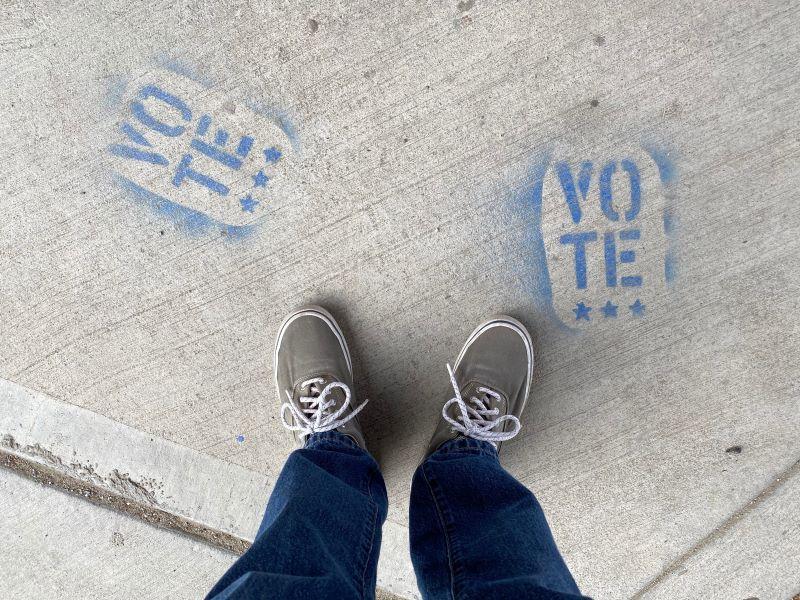
Fake news and disinformation abounds, but what can universities do?
Few universities offer courses on countering propaganda, and Russia’s invasion of Ukraine brings this weakness of provision into sharp relief, says Paul Baines

Why do universities exist? The short answer is to offer teaching to students to help them obtain higher-level qualifications, and for the instructors who teach to carry out research to back up their credentials and strengthen that higher-level teaching. Increasingly, though, universities are also expected to make a positive and substantive impact on the environments in which they operate. So far, so simple.
Casting our minds back through the mists of time, university missions tended to centre on scholarship. The University of Al-Karaouine in Fez, Morocco, the world’s oldest university, focused on Islamic religion from 859. The West’s oldest university, the University of Bologna, taught civil law from 1088.
From these beginnings, universities supported societal development through knowledge dissemination, initially in theology, music, law and medicine – and now through further arts and humanities, engineering, science and social science disciplines. Doctorates were developed in the Muslim world in the 9th century but really took off in the West from the 1800s and only developed into research-based awards, as opposed to advanced scholarship, even later.
- How universities can promote ‘democratic competences’ among students
- A higher education playbook for strengthening democracy: what institutions can do
- Four key strategies for higher education leaders to advance democracy
Despite wars, plagues, economic downturns and demographic changes, universities continued to adapt to societal change and developed a distinctive, independent voice. They have also exploded in number, in geographical reach and in terms of subjects covered. Their work underpins the knowledge economy, which itself underpins the actual economy, plus politics and society.
Crucially, they generate debate and, through that debate, solutions to some of life’s most complex problems. Their input to the policy process underpinning politics is the grease applied to the government’s engine.
Why, then, amid this increasingly illiberal, populist era – think Trump, Putin, Erdoğan, Orbán and many more – don’t universities play a stronger role in the defence of democracy? After all, democracy has been around since 6th century BC Athens or, in its modern form, since Finland removed race and gender restrictions on voting in 1906.
Most universities provide only a limited offering to tackle the scourges of propaganda, fake news, disinformation and misinformation. This is despite the fact that these are not new problems. Propaganda has been around since the beginning of democracy and took on new resonance in the 20th century during the First and, especially, Second World War. But the advent of the internet morphed this scourge into something even more powerful and more harmful to our citizens and their relationships with government.
‘Houston, we have a disinformation problem’
Consider how social media misinformation and disinformation exacerbated Covid-vaccine hesitancy in many countries. Rogue nations and terrorist groups have long used social media and the internet to distribute pet conspiracy theories.
Back in 1980, the US Central Intelligence Agency believed that the Soviet Union was spending at least $3 billion a year on disinformation campaigns to sully the West’s relationships with third-party countries and sow distrust and confusion. Meanwhile, over the past decade, Russia has busily got on with developing numerous disinformation campaigns, from intervening, probably successfully, in the 2016 US presidential election to using the pretext of “de-Nazification” to justify the invasion of Ukraine. The question arises: if Russia was spending $3 billion a year in 1980, how much might it be spending now?
What are we going to do about it?
Most universities have departments of political science, communication studies, sometimes even war and peace studies, but few have courses centred on the promotion, or protection, of democracy – much less courses focused on countering forces designed to destroy the democratic fabric of a nation.
Russia’s invasion of Ukraine brings this weakness of university provision into sharp relief. When a country can openly invade another, completely disregarding its sovereignty, and insist that it kowtows or else, the university sector should sit up and listen. And then plan how to counter such behaviour, because that way lie tyranny and the eradication of democracy.
Universities have a central role in training people to study and develop new systems with which to defend our democracies and promote democracy in other countries. Governments might consider funding the setting up of a pilot group of Schools of Influence or Schools of Strategic Communication, which are tasked with providing degree-level scholarship into counter-disinformation and counter-propaganda.
These programmes ought to be focused on propaganda and disinformation at the bachelor level (for entry-level jobs in countering propaganda and disinformation), master’s level (for those with a few years’ experience) and doctoral level (for those with more experience looking to develop expert status). Government and the defence sector should create more jobs in this area, too, as skilled graduates come through and enter the employment market.
Research councils might look to develop programmes to support an expansion of research in this area including expanding sponsored MPhil and PhD numbers. Meanwhile, defence companies could consider partnering with universities to sponsor professorial posts or individual research programmes, domestically, and in countries where democracy is fragile and democracy promotion is critical.
As the world finds itself having to deal with all sorts of despots in the international relations field, so we should be prepared to defend democratic values. Universities have a central role to play in upholding truth, free speech and the promotion of democracy.
Paul Baines is professor of political marketing and deputy dean (strategic projects) at the University of Leicester School of Business.
If you would like advice and insight from academics and university staff delivered direct to your inbox each week, sign up for the Campus newsletter.


